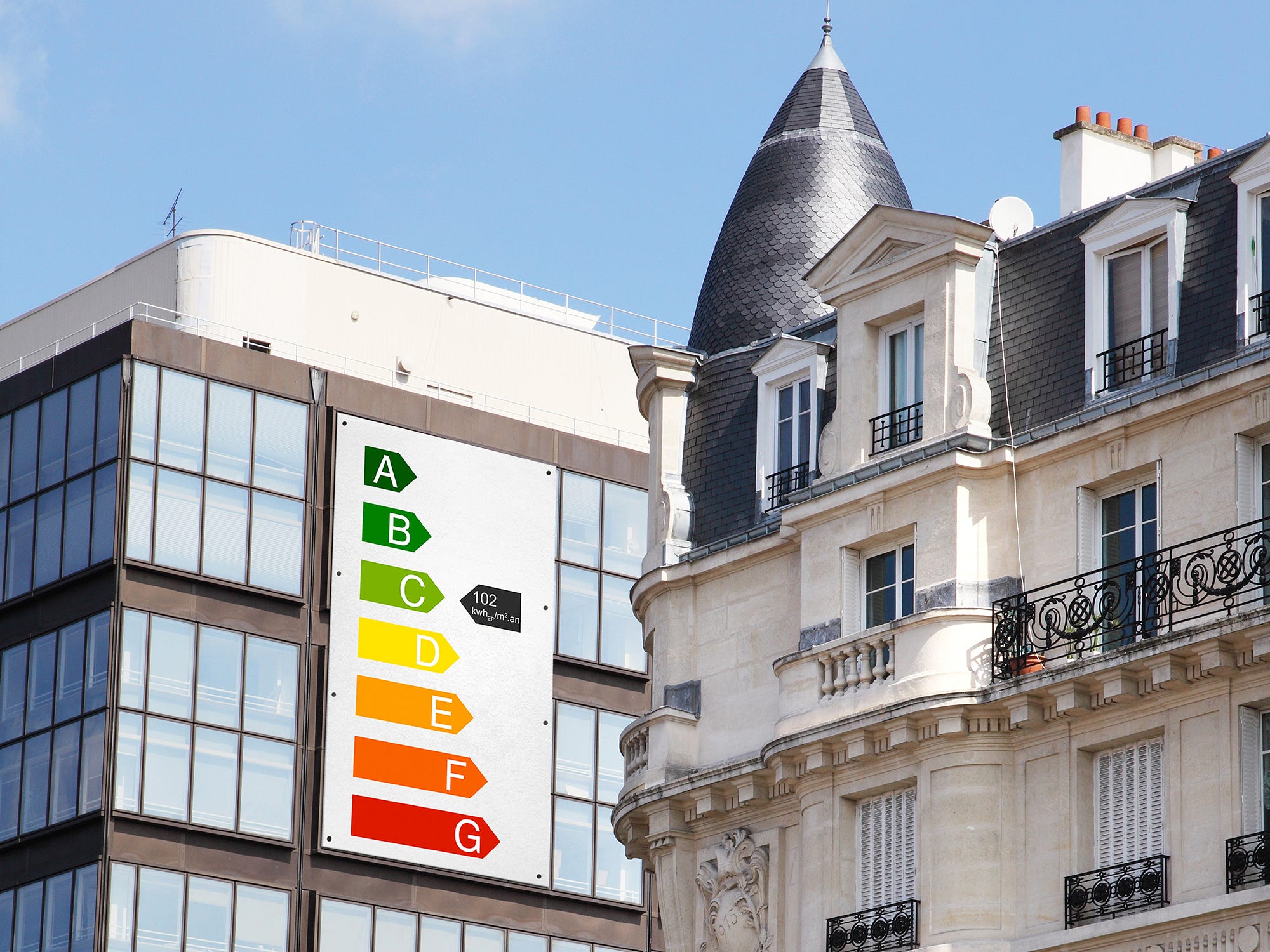Sustainability and energy efficiency

Cut HVAC energy costs
On average, 50%1 of the energy use in a commercial building is spent on heating, cooling or moving air. Of that, HVAC air filters installed in your air handling unit are responsible for around 16%2 of your total electricity bill.1
And there’s a big difference between different HVAC air filters. Some products use three times the energy of others – all while doing the same job and delivering the same level of air quality.
When you consider that changing air filters typically requires no retrofit works or disruption, you can see why switching to energy-saving air filters is one of the easiest, quickest, and most effective ways of cutting energy usage in a commercial building.
1 Optimal HVAC Control as Demand Response with On-site Energy Storage and Generation System, Young M.Lee, Raya Horesh Leo Liberti 2015
2 Klimatkatalysatorn 2021, Svensk ventilation
How does a filter consume energy?
It has no batteries or power supply, so it may seem strange to talk of the energy consumption of an HVAC filter. But an air filter could actually be one of the biggest consumers of energy in your building. A filter uses energy by creating a resistance to the air flow of an HVAC system. This resistance is known as pressure drop and means that the fan must work harder to move the same volume of air. If we can lower the pressure drop of the filter configuration, we can reduce the speed of the fan and save HVAC energy and money. In fact, it’s estimated that reducing pressure drop by 1 Pascal can cut energy consumption by 11 kWh or in costs by 2 to 3 € a year depending on your local energy costs.
Choosing an energy efficient air filter
Fortunately, comparing air filters is quick and easy with the Eurovent-operated energy efficiency scheme. Eurovent 4/21 follows a similar format to that used with refrigerators, televisions and other consumer goods. The scheme uses independently verified performance data to rank air filters on a scale of A+ (the best) to E (the worst).
Air filters are categorized according to their ISO 16890 rating, with the lower filter grades providing greater energy efficiency.
For example, a B-rated ePM2.5 55% filter has a lower energy consumption than an A+-rated ePM2.5 90% product. That’s why it is important to get the balance right between air quality and energy efficiency – an over-specified air filter in terms of air cleanliness can cost a lot more in energy.
Compare the cost
To give you a clearer picture of what you could save by switching to a low-energy HVAC filter, we’ve created a calculator that compares the different energy ratings and compares that with other devices. You can also enter your energy price to calculate the difference in monetary terms.
See how much you could save with our HVAC filter energy efficiency calculator.
A cheaper filter may cost much more in HVAC energy
It is a common misconception that a cheap air filter saves money. In fact, the purchase price is just 10% of the cost associated with a filter over its lifetime. Energy is by far and away the largest cost, accounting for 80% on average. This is why choosing a ‘cheaper’ filter may well end up costing much more in the long run. You may spend a little more on purchasing an energy-efficient air filter. But the costs over its lifetime are likely to be much lower.
Working out the lifecycle cost of an HVAC air filter involves analyzing a number of factors. Fortunately, MANN+HUMMEL has created a custom algorithm that can precisely calculate the total costs of the most popular products on the market, so you know exactly what choice to make.

Energy efficiency for FM providers
Reducing energy consumption with air filters is not just a benefit for end customers, it is also essential tool to help facilities management providers hit their agreed energy reduction targets and meet their own CSR ambitions.
Find out more in our energy-efficient air filtration guide for facilities management contractors
Switch to an energy-saving air filter
MANN+HUMMEL are experts in energy efficient air filtration; that’s why we have a wider range of filter classes rated A+ than any other manufacturer. See below for our range of A+ and A-rated filters:

The importance of changing filters on time
As a filter becomes clogged with dust, the pressure drop – and so energy consumption – increases. That’s why it is vital to change filters before they become too dirty. Obviously, there is the temptation to try to squeeze as much life as possible to reduce the expenditure on new filters and the cost of replacement. But doing so could come at the price of a significantly higher HVAC energy bill.
Contact us
At MANN+HUMMEL, we’re here to support your air filtration needs! Whether you have questions about our products or need tailored solutions, our expert team is ready to assist you. Reach out to us via email, telephone or contact form to discuss your requirements, and let’s work together to enhance your air quality. Contact us today and experience exceptional service tailored to your business!






